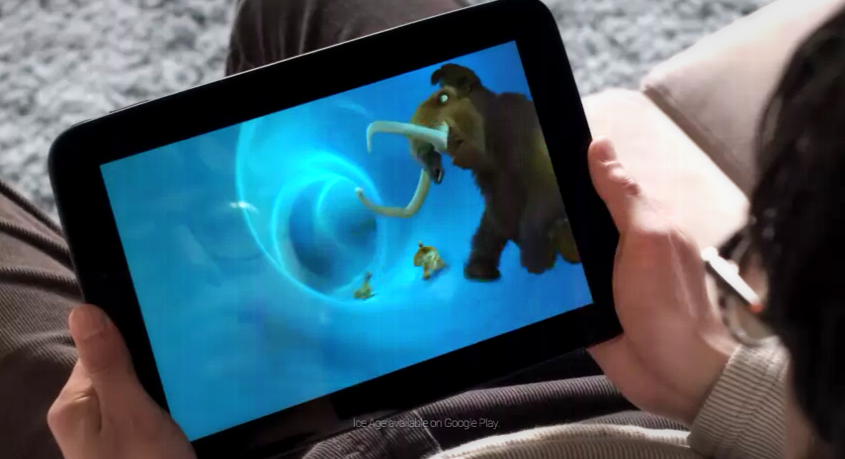
You will buy Google Nexus 10
It's an itch you'll want to scratch this holiday. Just give into it.
Preliminary results from our poll "Will you buy Google Nexus 10?" are in, and I'm not satisfied enough with the numbers, being well below 1,000 responses (hence, poll is reposted here). But at this juncture, 36.82 percent say they will buy as soon as the tablet is available -- and that's November 13 in some regions. Another 18.32 percent plan to buy within 3 months. So more than 55 percent plan to get the Nexus 10 before Valentine's Day. Hey, that's two holidays for you to ask for one, with Christmas obviously in-between. Ten percent of respondents are unsure, while 25.86 percent say they won't buy.
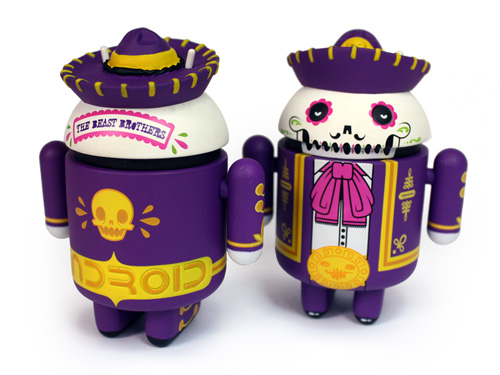
Three out of four smartphones ship with Android
Android's ascension over iPhone reached the figurative stratosphere during third quarter, according to IDC. Seventy-five percent of smartphones shipped with the operating system -- that's up from 57.5 percent a year earlier. By comparison, iOS nudged up to 14.9 percent, from 13.8 percent. That's right, little more than 1 percent. There's a reason that in September I asserted "Android wins the smartphone wars". There's certain appropriateness to IDC releasing the data on Day of the Dead.
Out of fairness to Apple, iPhone unit volumes rose considerably more, 57.3 percent, than market share reflects -- 26.9 million units compared to 17.1 million a year earlier. Android shipments rose 91.5 percent; 136 million, compared to 71 million in Q3 2011. Still, Android volumes in the quarter exceeded that for all smartphones in 2007. My how the market has changed.

Who killed Windows Small Business Server? Google
Most people probably didn't turn a glance at Microsoft's other big recent release, Windows Server 2012. Server operating systems rarely get much attention, and appropriately so; their appeal and importance really only extends to the rank and file of server administrators and other similar decision makers. And plus, with Windows 8 and Surface making the public rounds, there's plenty of fanfare to go around.
But there's something most obviously missing from the latest Server 2012 lineup, and that is a subsequent Small Business Server release. Redmond Channel Partner magazine first brought this to my attention. Not only did SBS get the axe, but Microsoft also went on to kill off Windows Home Server as well. The last public version of WHS was version 2011, which happened to be the second and final release in this platform's short lived history.
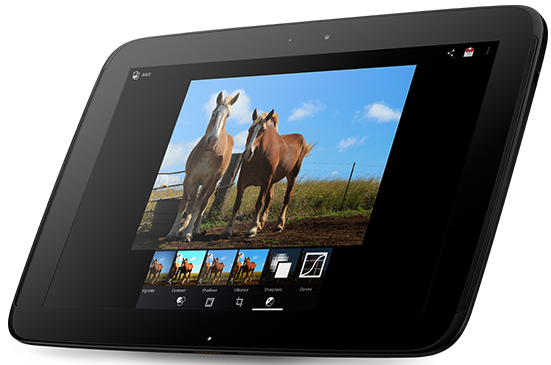
Will you buy Google Nexus 10?
Two weeks from today, Google's first 10.1-inch tablet, manufactured by Samsung, goes on sale from the Play store. If the search and information giant is smart, pre-orders will start sooner, sure to generate buzz even as Apple seeks some when iPad mini arrives November 2. The question I have to ask: Will you buy?
That's no easy answer for competitive shoppers. Thanks to Windows RT, there's no shortage of tablets to choose from this holiday season. Nexus 10 is compelling nonetheless. Screen resolution is highest -- 2560 by 1600 -- available on a tablet, and that's more than iPad 4. Price is hugely competitive. The 16GB model sells for $100 less than Apple's comparable tablet. Then there is Android 4.2, newest Jelly Bean iteration, and promise of continued updates free of vendor skins and other changes. As the expression goes: "Pure Google".
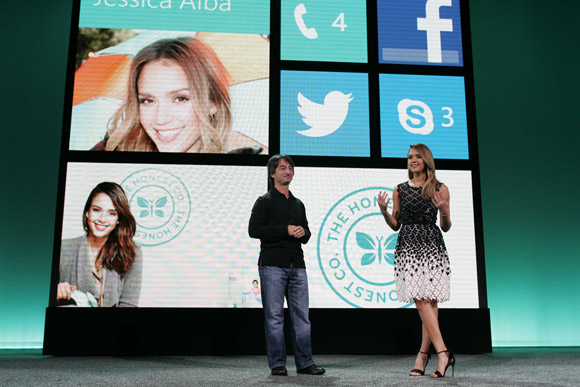
What's new in Windows Phone 8?
Windows Phone 8 made its big, splashy debut yesterday, bringing compelling new features to those people buying new handsets (the software isn't available for any devices running version 7.x or earlier). Ahead of the launch, Nokia and HTC announced devices, as well as Samsung providing an ATIV S glimpse. But now we finally have all of the details about the operating systems' features.
During yesterday's event, Joe Belfiore, Windows Phone general manager, and Terry Myerson, corporate veep, touted the new software's many benefits, marching through a rather lengthy list of all of the new features that they hope will make Windows Phone 8 a serious competitor to both Android and iOS. The devices have previously ranked very high in user satisfaction and, famously, the "all-knowing" Siri app for iPhone even called the Nokia Lumia 900 the best smartphone available. However, enough about all of that. Let's get to some of what Microsoft offers in this new platform.
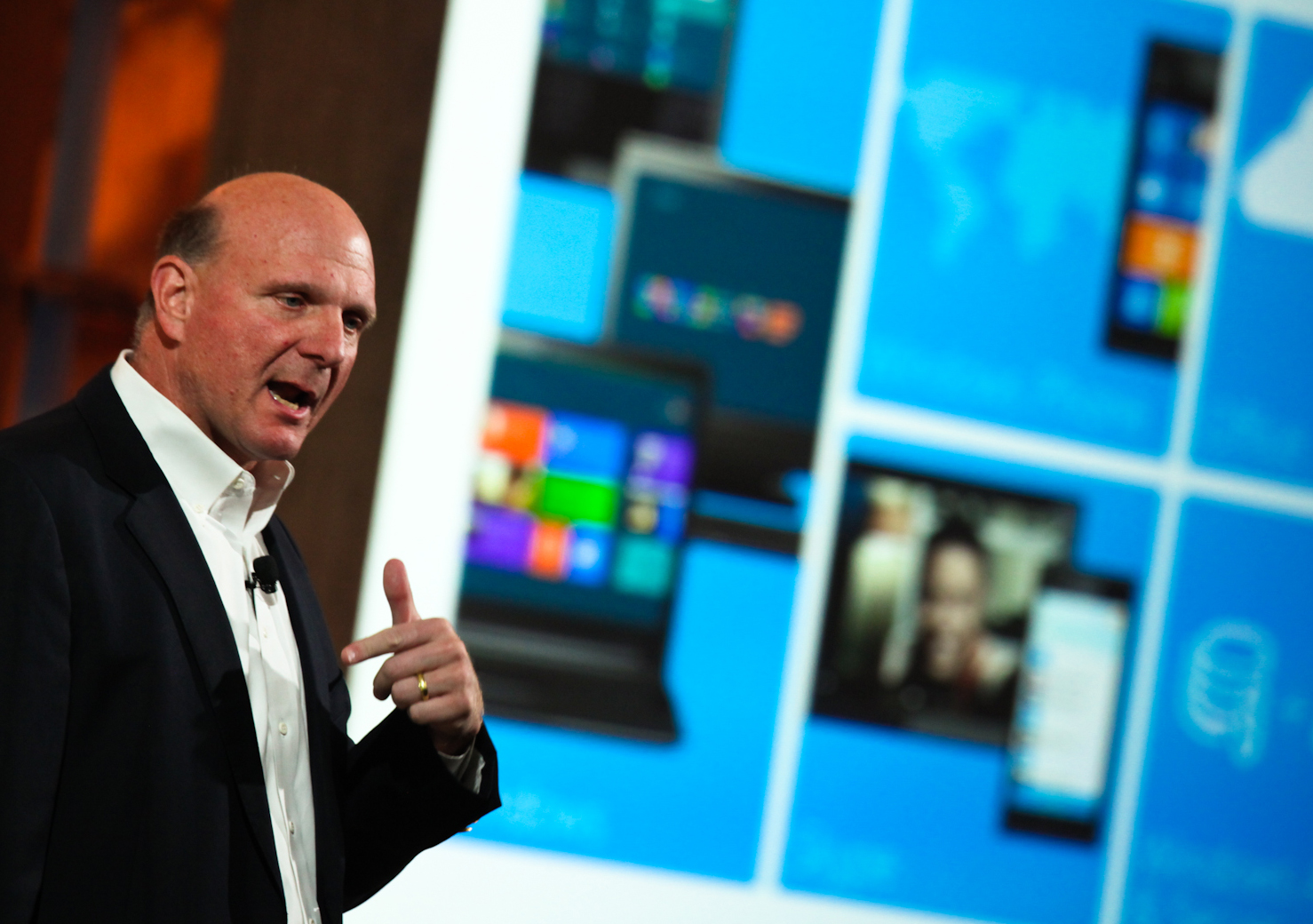
Steve Ballmer should pitch more Microsoft products
Microsoft's CEO may be a smart guy who can stand in a room of geeks like one of them. But Steve Ballmer's legacy is marketing. It's what he did before joining Microsoft and for much of his early years with the company. Colleague Mihaita Bamburic calls out a new Windows Phone 8 commercial that Ballmer narrates.
Oh yeah. Don't stop there, Microsoft. The new advert is "Meet Steve. See his Windows Phone". Do a series of "Meet Steve" adverts using all kinds of Microsoft products. People relate to people, and nothing resonates more than those who are hugely successful. Make Ballmer the person other folks aspire to be.

Windows is doomed
Napier & Son was the most successful British manufacturer of aircraft engines in the 1920s and 30s with their 12-cylinder Napier Lion powering 163 different types of aircraft between 1918 and 1935. Over that 17 year period the Lion grew from 450 to 1350 horsepower and was, for awhile, the most powerful aircraft, boat and car engine in the world, holding world speed records in all three venues at the same time. And then the Napier Lion was suddenly gone -- a lesson from which Microsoft CEO Steve Ballmer could benefit if he and his company don’t repeat it.
Napier perfected the Lion engine over those 17 years, improving it in every way until it was the best and most efficient engine of its class in the world. Then, seemingly overnight, the class changed as air forces and record setters alike suddenly needed more than the 1,350 horsepower a finely-tuned Lion could deliver. Napier’s Lion gave way to Rolls-Royce’s larger and innately more powerful Merlin and Griffon engines and Napier, for all intents and purposes, was gone.

Whom do you trust with your personal data?
Like Microsoft in the late late 1990s and early 2000s, antitrust scrutiny confronts Google on two continents. Among the core issues emerging from the preliminary investigations: privacy. Your data, who has access to it, how clear are the search giant's privacy policies and how carefully does the company adhere to them. But Google is by no means the only concern. Facebook is renown for making user interface and feature changes that can suddenly and unexpectedly expose personal data, and there are problems past about third-party applications accessing what they shouldn't.
As more established tech companies offer more services in the cloud, increasingly there is lingering question: Whom do you trust with your personal data? Last month, Apple expanded cloud services with iOS 6 and iPad mini and the fourth-generation 9.7-inch model go on sale November 2, supporting them. On Friday, Microsoft launched Windows 8 and Surface and does same with Windows Phone on October 29. To get the most from these products, users must have a Microsoft account, like Apple and Google require for their cloud services. Meanwhile, Office 365 extends online sync, storage and collaboration features.
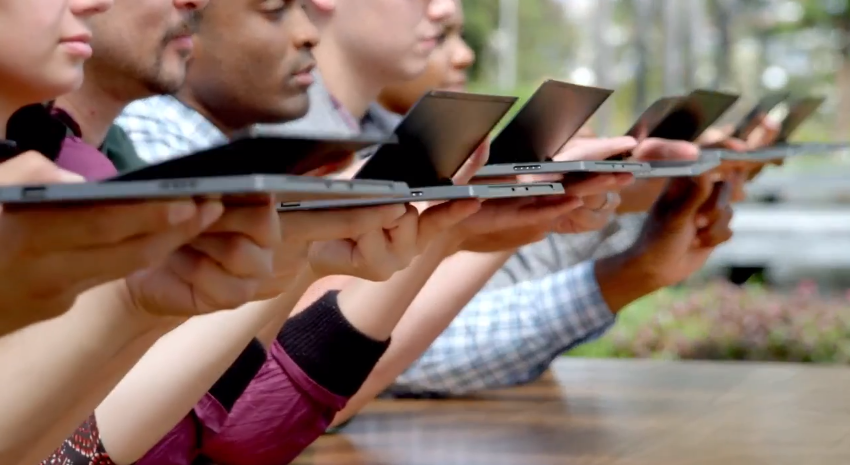
Desktop on Windows RT makes sense
Friday, October 26, Microsoft released its highly anticipated Surface RT tablets to the masses. I was able to snag one of these devices and spent most of my weekend in the web browser reading reviews that questioned Microsoft’s so-called "curious inclusion" of the desktop. Perhaps I’m missing something but I don’t understand why there is so much angst about the desktop in RT. Some people don’t understand why the desktop is there but I think it makes complete sense.
To be fair, I really do understand that to other reviewers of RT the desktop is only limited to MS Office applications and few other MS included apps like Notepad. Additionally, RT does not allow x86 apps to run or even be installed. That being said, I get the feeling this limitation due to the platform running on the ARM architecture is temporary.
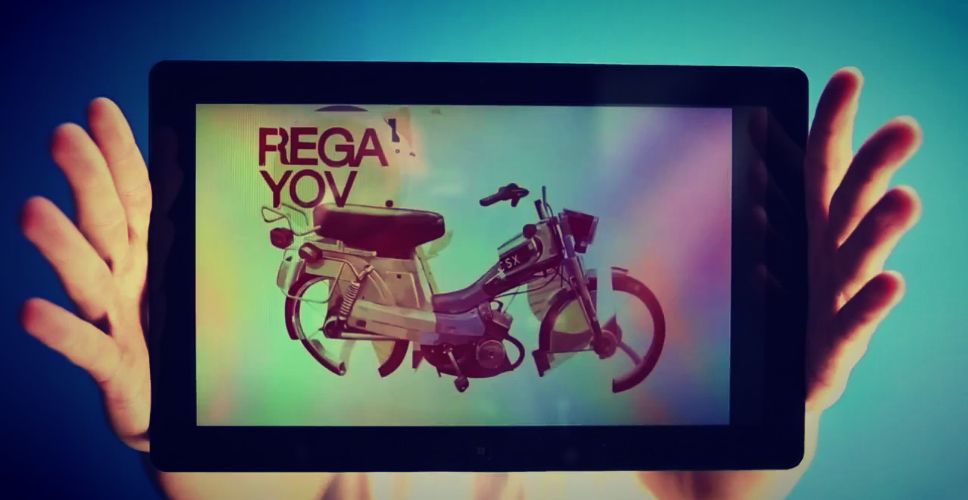
Windows 8 review
Without a shadow of a doubt Windows 8 is a game changer for Microsoft. It's the operating system designed to take the company into a new computing era where the personal computer is no longer the star of the show, but still plays an important role. Can the latest version of the popular operating system manage to shine against its predecessors on their home turf? And for that matter, should you upgrade?
Windows 8 is a mixed bag before its launch and generating quite strong impressions along the way since Microsoft released the final build to manufacturing. The main criticism: the new user interface formerly known as Metro and the steeper learning curve compared to Windows 8's predecessors; it's not as intuitive as well. That's what the critics say, but what's it like to actually live with Windows 8 for more than a brief period of time?

Eight out of 10 won't buy iPad mini
Early results from BetaNews poll "Will you buy iPad mini?" are in, and they are grim. Nearly 80 percent of respondents say they won't by purchase the device. But it's the hidden story behind the numbers that reveals more. In February, I asked" "Would you buy 8-inch iPad?" More than 50 percent responded "Yes". Nine months later, the size is ever-so-slightly less (7.9 inches) but the price is considerably more ($329 to $659) than what many people expected. What a difference that bit of information makes.
Apple started taking pre-orders today, and iPad mini goes on sale November 2. If white is your color of choice, they're already back-ordered, with shipping stated as "2 weeks". But black is available in all three capacities -- 16GB, 32GB and 64GB. That's for the WiFi models. Apple plans to offer cellular radio minis in mid-November. The sell-out is no sign of demand, since Apple might simply have produced more of one color than the other. That the tablet didn't immediately sell out says much about interest that quite possibly -- I'll say likely -- resonates with our poll.
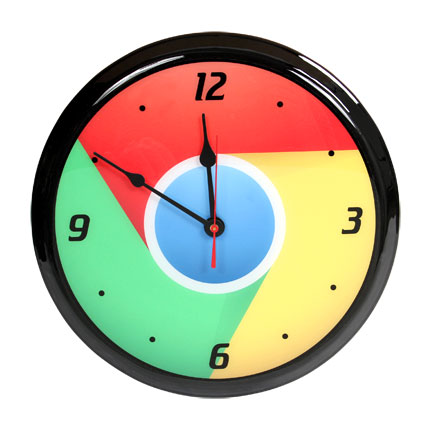
Get your Google back in Windows 8
If you’re the proud possessor of a copy of Windows 8, or you rushed out today to buy a brand new touchscreen device with it pre-installed, the first thing you’re going to need to do is configure it to suit your needs, and install all of your favorite software.
You’ll probably want to make installing a better browser a priority (no offense Microsoft) and Google has designed a version of Chrome especially for the new OS, with some customizations for touch screens, including larger buttons and the ability to keep the browser open next to other apps.
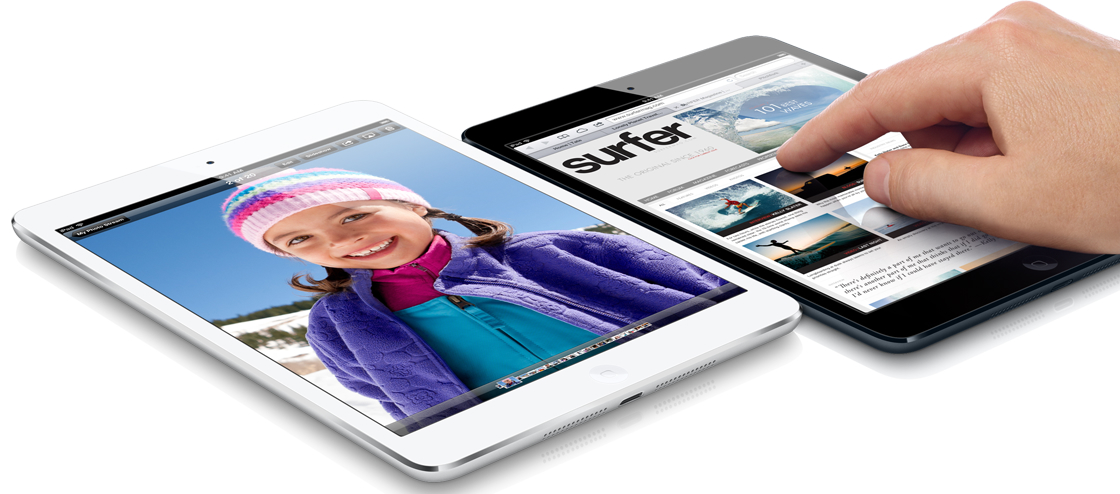
So this is WHY Apple risks so much on iPad mini
Apple has a big problem. Android tablets are making huge market share gains against iPad, in part driven by attractive and affordable smaller models like Amazon's Kindle Fire and Google Nexus 7. The Cupertino, Calif.-based company won't admit the reason, but other things said, or even unsaid, during yesterday's earnings conference call reveal much.
Then there is the sudden slowdown in iPad sales taken against new analyst data showing Android device increases. iPad mini is a desperate attempt to stop Apple's bleeding market share, and the cost will hit company margins.

Microsoft, stand up to Apple!
For a moment there I got really excited -- that Microsoft had pulled a brilliant marketing maneuver -- only to be disappointed. Within the hour I received email from the company's PR agency with subject line: "Microsoft announces Windows 8 global availability". Holy cow pies! A day early! Stop the presses. Sure enough the official press release proclaims: "Windows 8 arrives". Except it hasn't. You still have to wait until Midnight tonight. Bummer.
I knew there was trouble when rushing to Microsoft Store online that Surface RT tablets and Windows 8 are still pre-order. When going back to actually read the fine print, sure enough the press release qualifies "beginning Friday". Excuse me for nit-picking semantics, but doesn't "arrives" mean now? (Granted, it's Friday somewhere in the world and has been for more than six hours. But the announcement and New York prelaunch don't coincide with anything like Midnight anywhere in the world.)
H-1B visa abuse limits wages and steals US jobs
The H-1B visa program was created in 1990 to allow companies to bring skilled technical workers into the USA. It’s a non-immigrant visa and so has nothing at all to do with staying in the country, becoming a citizen, or starting a business. Big tech employers are constantly lobbying for increases in H-1B quotas citing their inability to find qualified US job applicants. Microsoft cofounder Bill Gates and other leaders from the IT industry have testified about this before Congress. Both major political parties embrace the H-1B program with varying levels of enthusiasm.
But Bill Gates is wrong. What he said to Congress may have been right for Microsoft but was wrong for America and can only lead to lower wages, lower employment, and a lower standard of living. This is a bigger deal than people understand: it’s the rebirth of industrial labor relations circa 1920. Our ignorance about the H-1B visa program is being used to unfairly limit wages and steal -- yes, steal -- jobs from US citizens.
